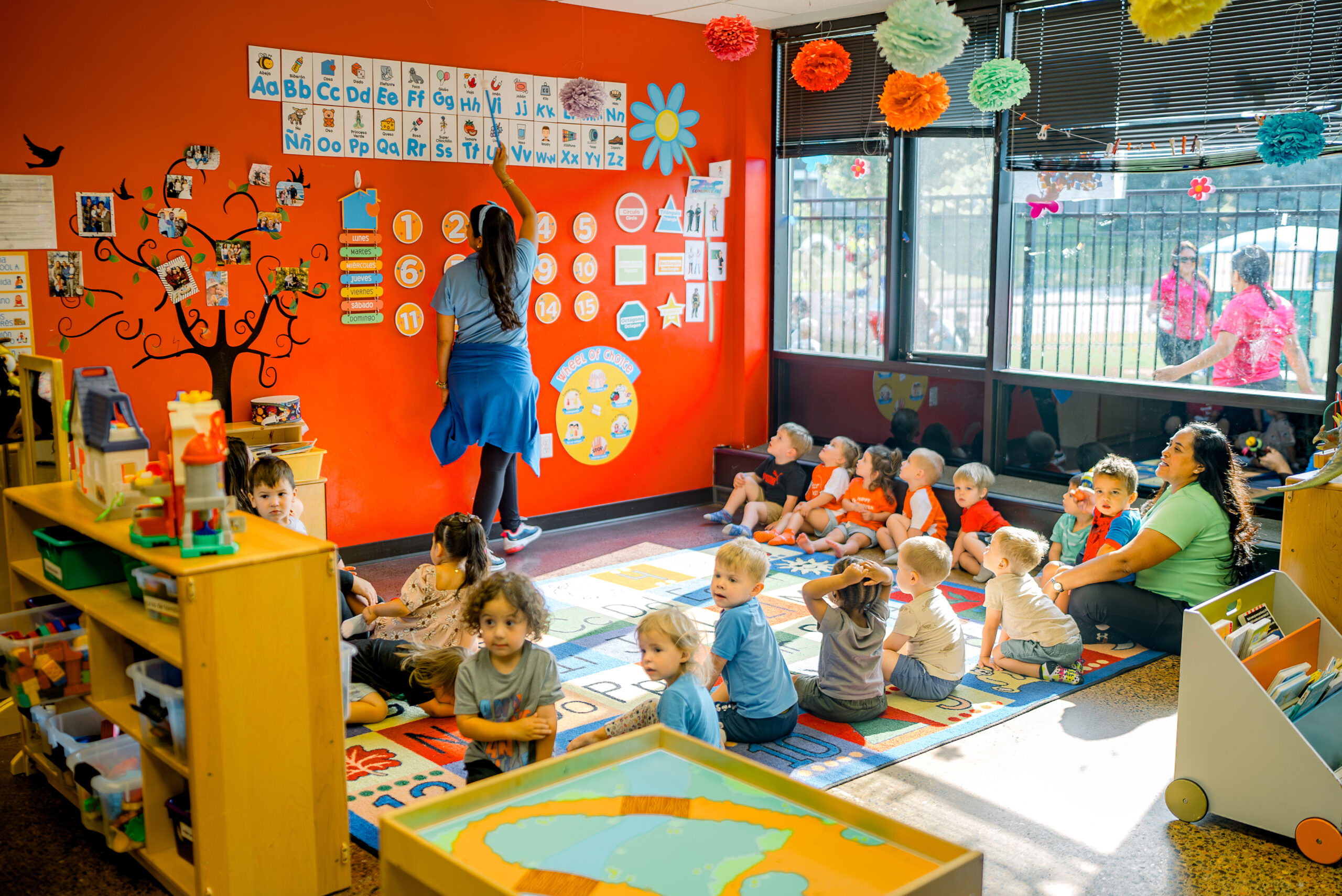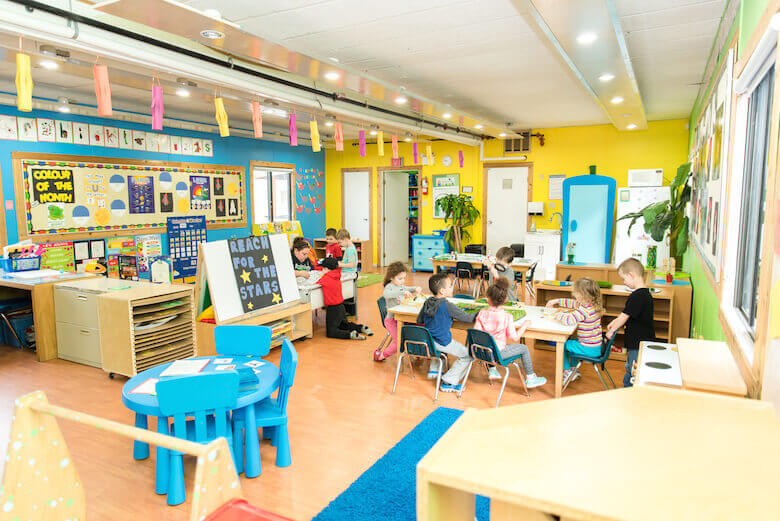A Parent’s Guide To Evaluating The Best Childcare Near Me Centers
The Duty of DAYCARE in Fostering Social Abilities and Very Early Knowing
Childcare serves as a significant atmosphere for young kids, promoting important social communications that promote very early discovering. In this organized setting, kids involve with caregivers and peers, establishing essential communication and participation skills. As they navigate play and different tasks, they learn to fix problems and build emotional knowledge. Recognizing the subtleties of these interactions reveals the profound effect childcare carries a child's advancement, forming their future partnerships and academic readiness. What details skills do children acquire in this setting?
The Significance of Social Interaction in Childcare
While many moms and dads identify the value of very early childhood education and learning, the function of social communication in day care is commonly ignored. Daycare setups give youngsters with vital possibilities to involve with peers, cultivating important social abilities. Throughout these developmental years, children learn to browse numerous social characteristics, such as sharing, participation, and problem resolution. Connecting with varied age teams and characters improves their ability to adjust to various atmospheres and establish compassion towards others.

Structure Communication Skills Through Play
Play serves as a powerful tool for youngsters to construct important interaction skills in day care settings. With different play activities, children engage in conversations, express their thoughts, and find out to pay attention to others. Role-playing games, for example, urge them to make use of language in various contexts, promoting vocabulary expansion and understanding of social hints.

In addition, storytelling during play allows kids to share feelings and concepts, helping them establish narrative abilities and self-confidence in their spoken expressions. Overall, play not just acts as a pleasurable pastime however additionally as a necessary system for developing the communication abilities essential for effective social interactions in later life.
Encouraging Teamwork and Synergy
Cooperation and teamwork are vital abilities that youngsters can grow in childcare environments. Through various group activities, such as developing tasks or joint games, children learn to share obligations and pursue usual objectives. These interactions foster an understanding of the significance of listening to others, discussing functions, and endangering when essential.
In daycare settings, caregivers usually produce possibilities for kids to take part in teamwork by motivating them to take part in team jobs. This not just aids youngsters develop social bonds but also cultivates a sense of belonging and area.
As they browse these participating experiences, kids acquire important insights right into the dynamics of dealing with peers. They learn to value diverse point of views and recognize that each participant adds uniquely to the group effort. Ultimately, these very early lessons in collaboration and synergy lay the groundwork for much healthier connections and efficient cooperation in future social and academic setups.
Structured Knowing Activities and Cognitive Development
Structured learning tasks play an essential duty in promoting cognitive growth in children (Childcare North York). These tasks, which include problems, storytelling, and hands-on experiments, promote critical reasoning and problem-solving abilities. In a daycare setup, organized discovering motivates children to involve with their peers, boosting their ability to procedure information and recognize numerous ideas
Through led play and interactive jobs, children establish foundational abilities such as numeracy and proficiency. As an example, activities centered around numbers can aid kids realize mathematical ideas, while narration enhances language purchase and understanding. In addition, structured understanding allows educators to evaluate developmental development and dressmaker activities to private understanding demands.

Incorporating a diverse series of structured tasks not just advertises cognitive growth however likewise prepares kids for future academic success. By offering a balanced environment that cultivates expedition and questions, day care programs play a crucial duty in forming the cognitive abilities of young learners.
Cultivating Psychological Intelligence and Confidence
Psychological knowledge and confidence are important components of a child's development, enhancing the cognitive abilities promoted with structured discovering tasks. In day care settings, children are offered with chances to express their feelings and engage in social interactions, which are essential for building emotional awareness. Via assisted play and team activities, youngsters discover to identify their feelings, recognize those of others, and develop compassion.
Communication with caretakers and peers helps to grow self-esteem and durability. Favorable reinforcement and support from grownups equip youngsters to take dangers and face obstacles, fostering a feeling of accomplishment. As they navigate social characteristics, children develop self-confidence in their abilities to interact, team up, and solve conflicts - Child Care Near Me. This nurturing atmosphere enables the progressive growth of emotional intelligence, which is crucial for future interpersonal partnerships and general health. As a result, daycare plays a substantial function in fostering both emotional intelligence and self-confidence in little ones
Often Asked Questions
Exactly How Can Parents Pick the Right Daycare for Their Child?
Parents must take into consideration factors such as location, personnel certifications, security criteria, educational program, and reviews from other parents when picking the best childcare for their youngster, guaranteeing it straightens with their child's developing requirements and family members values.
What Age Is Finest for Beginning Childcare?

Just How Does Day care Influence Children's Habits at Home?
Day care often favorably affects children's actions at home by improving social abilities, promoting self-reliance, and motivating emotional policy (Daycare North York). Consequently, kids might display better communication why not try these out and collaboration, bring about more harmonious household characteristics
Are There Any Drawbacks to Childcare Presence?
Yes, there are downsides to daycare participation, consisting of possible splitting up stress and anxiety, direct exposure to ailments, and irregular caregiving. These factors can affect a kid's emotional wellness and change in the house, influencing total family characteristics.
Exactly How Can Moms And Dads Assistance Social Abilities Found Out at Childcare?
Moms and dads can sustain social abilities found out at childcare by facilitating playdates, encouraging participating tasks, modeling favorable communications, reviewing sensations, and enhancing sharing and interaction in your home, consequently improving their kid's social advancement and confidence.
Daycare offers as a significant environment for young children, facilitating essential social interactions that advertise early knowing. Daycare setups supply children with vital possibilities to involve with peers, fostering vital social abilities. Play serves as an effective tool for youngsters to build essential communication abilities in daycare setups. In childcare setups, kids are offered with opportunities to express their feelings and engage in social interactions, which are critical for constructing emotional awareness. Childcare typically positively affects children's behavior at home by Discover More Here boosting social address skills, promoting self-reliance, and encouraging psychological guideline.